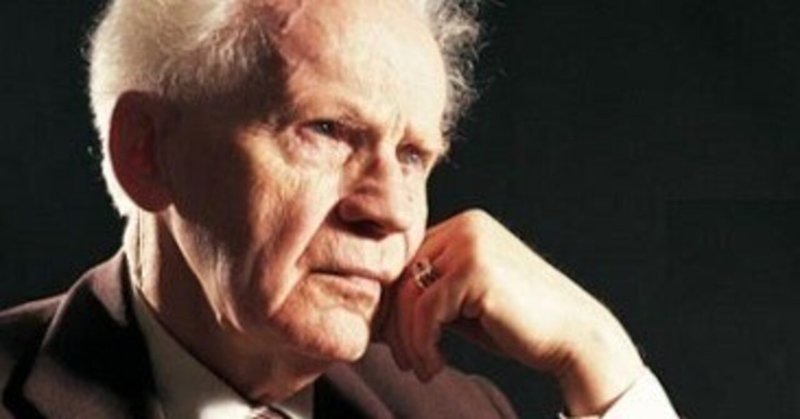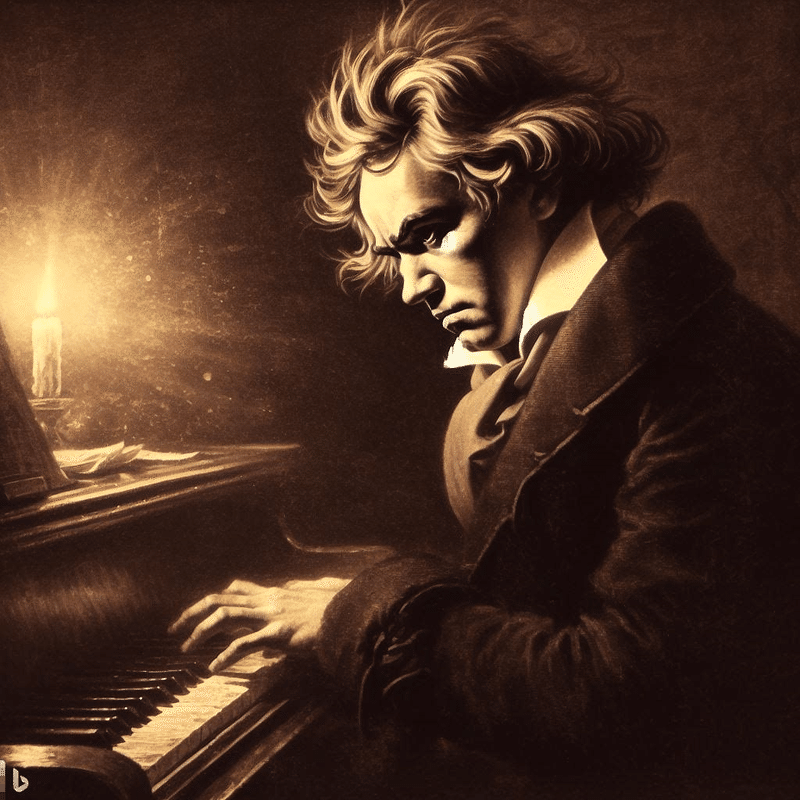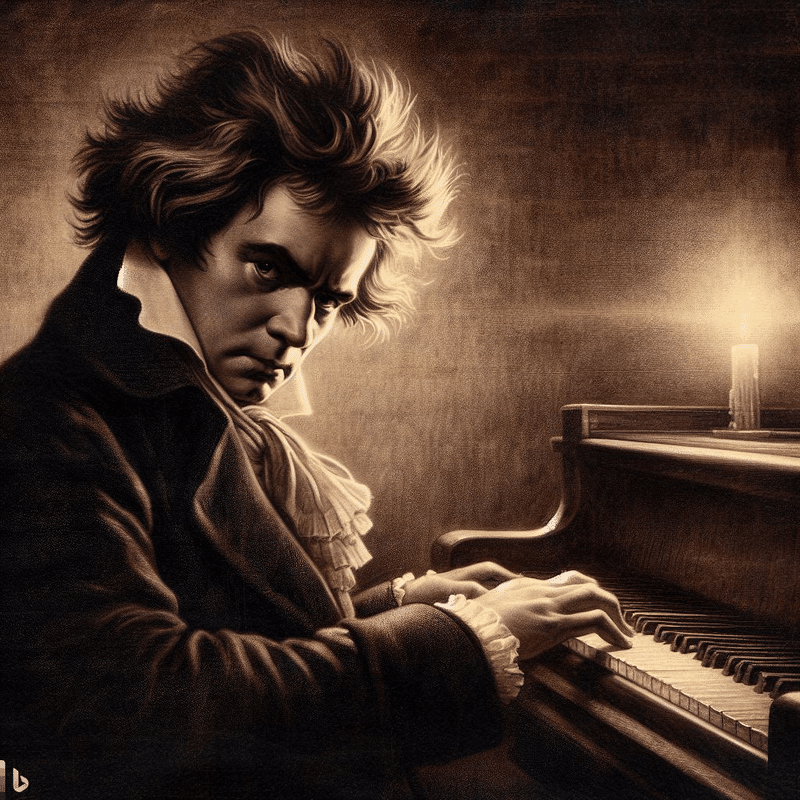
単なる記録という意味を越えた、音楽とは何かを考えさせられるバックハウス『最後のリサイタル』
バックハウス『最後のリサイタル』は、音楽史に残る名盤のひとつです。この記事では、その演奏の背景と魅力について紹介します。
バックハウスというピアニスト
ヴィルヘルム・バックハウス(1884-1969)は、ドイツ出身のピアニストで、ベートーヴェンやブラームスなどのドイツ・オーストリア音楽を得意としました。彼は幼い頃から音楽の天才として注目され、10歳で初リサイタルを開き、13歳で初録音を行いました。その後、世界各地で演奏活動を展開し、特にイギリスや日本では絶大な人気を博しました。
バックハウスの演奏スタイルは、力強く正確で厳格なものでした。彼は自分の感情や個性を抑えて、作曲家の意図を忠実に再現しようと努めました。そのため、彼の演奏は冷たく感じられることもありましたが、同時に高い技術と深い洞察力によって、音楽の本質を見事に表現していました。
バックハウスは生涯にわたってピアノを愛し続けました。彼は晩年まで精力的に演奏し、85歳で亡くなる直前までコンサートを行っていました。彼は自分の趣味について聞かれたとき、「ピアノを弾きます」と答えたという逸話があります。彼にとって、ピアノは生きがいであり、存在そのものだったのです。
最後のリサイタル
1969年6月26日と28日の両日、バックハウスは南オーストリアのケルンテン音楽祭に招かれ、リサイタルを開きました。このリサイタルは録音されており、現在もCDやYouTubeで聴くことができます。
このリサイタルでは、バックハウスは自分の得意なレパートリーから選んだ曲目を演奏しました。第一日目は、ベートーヴェンのピアノ・ソナタ第21番《ワルトシュタイン》、モーツァルトのピアノ・ソナタ第11番《トルコ行進曲付き》、《楽興の時》D.780、シューベルトの即興曲集D.899(作品90)などを弾きました。第二日目は、シューベルトの即興曲集D.935(作品142)とベートーヴェンのピアノ・ソナタ第18番などを弾きました。
しかし、第二日目の演奏途中、バックハウスは突然体調を崩しました。最後の曲目であるベートーヴェンのピアノ・ソナタ第18番のフィナーレを弾き始めたところで、彼は手が動かなくなり、演奏を中断せざるを得ませんでした。観客は驚きと心配で静まり返りましたが、バックハウスは何とか立ち上がり、「すみません」と謝罪しました。そして、楽屋に戻って休憩しました。
しばらくして、バックハウスは再び舞台に現れました。彼は観客に向かって、「ベートーヴェンの代わりにシューマンとシューベルトを弾きます」と宣言しました。そして、シューマンの「夕べに」と「なぜに」、シューベルトの即興曲変イ長調D.935-2を弾き終えました。このとき、彼は観客に感謝の言葉を述べた後、「さようなら」と言いました。それが彼の最後の言葉となりました。
バックハウスはそのまま病院に運ばれましたが、回復することはありませんでした。彼は心不全のため、7日後の7月5日に亡くなりました。彼は85歳でした。
最後のリサイタルの魅力
バックハウスの最後のリサイタルは、単なる記録という意味を越えた、音楽とは何かを考えさせられる演奏です。ここに聴くバックハウスの音楽は、何と強靭で確固としたものでしょう。彼は自分の体力や技術の衰えを感じていたかもしれませんが、それを感じさせないほどに、音楽に全身全霊を注ぎ込みました。
特に印象的なのは、ベートーヴェンの《ワルトシュタイン》です。この曲は、ベートーヴェンが聴覚障害に苦しみながらも、新しい音楽的表現を追求した作品です。バックハウスはこの曲を深く理解し、自分の解釈を鮮やかに表現しました。第二楽章では、静かで瞑想的な雰囲気を作り出し、第三楽章では、壮大で激情的な展開を見せました。この演奏は、バックハウスが自分の命の灯を燃やし尽くした証であり、聴く者に強烈な感動を与えます。
また、シューマンやシューベルトの小品も見逃せません。これらの曲は、バックハウスが演奏中断後に弾いたものですが、彼はまるで別人のように優しく柔らかく弾きました。彼は自分の心情や感情を素直に表現し、観客と共有しようとしました。これらの演奏は、辞世の歌というにふさわしい絶品です。その深い瞑想と寂寥感において他に比肩しうるピアニストは一人もいないでしょう。
バックハウス『最後のリサイタル』は、音楽家として生きた一人の人間の最期を記録した貴重なドキュメントです。しかし、それだけではありません。この演奏は、音楽が人間に与える力と意味を示しています。音楽は人間を癒し、励まし、高めることができます。音楽は人間が生きる理由でもあります。
コメント
小島晶二 2022年05月22日 00:36
このディスクが今迄<ぶった斬り>で採り上げられなかったのは不思議ですね。息をするのを失念するほどの渾身の名演だと思わざるをえません。ご指摘された<ワルトシュタイン>とモーツァルトK331は傑出したライヴ演奏と言えるでしょう。特に前者は冒頭の和音からして,他のピアニストは束になっても敵わないと言わしめる深遠さで,流石のホロヴィッツやギレリスも遜色は免れませんね。私はバックハウスのベートーヴェン全てが秀逸とは思いませんが,本演奏は大きくそびえ立つ巨大な山脈の様な感銘を受けます。和田大貴 2022年05月22日 00:50
いずれの楽曲の演奏も神々しささえ感じさせるような至高の超名演です。既に録音からほぼ50年が経過しており、単純に技量面だけに着目すれば更に優れた演奏も数多く生み出されてはいますが、その音楽内容の精神的な深みにおいては、今なお本演奏を凌駕するものがあらわれていないというのは殆ど驚異的ですらあります。まさに本演奏こそは、例えばベートーヴェンの交響曲などでのフルトヴェングラーによる演奏と同様に、ドイツ音楽の精神的な神髄を描出するフラッグシップの役割を担っているとさえ言えるでしょう。バックハウスのピアノはいささかも奇を衒うことなく、悠揚迫らぬテンポで曲想を描き出していくというものです。飾り気など薬にしたくもなく、聴き手に微笑みかけることなど皆無であることから、聴きようによっては素っ気なささえ感じさせるきらいがないわけではありません。しかしながら、かかる古武士のような演奏には独特の風格があり、各フレーズの端々から滲み出してくる滋味豊かなニュアンスは、奥深い情感に満ち溢れています。全体の造型はきわめて堅固であり、スケールは雄渾の極み。その演奏の威容には峻厳たるものがあると言えるところであり、聴き手もただただ居住まいを正さずにはいられないほどです。したがいまして、本演奏を聴く際には、聴く側も相当の気構えを要します。バックハウスと覇を争ったケンプの名演には、万人に微笑みかけるある種の親しみやすさがあることから、少々体調が悪くてもその魅力を堪能することが可能ですが、バックハウスの場合は、よほど体調が良くないとその魅力を味わうことは困難であるという、容易に人を寄せ付けないような厳しい側面があり、まさに孤高の至芸と言っても過言ではないのではないでしょうか。Josh 2022年07月03日 12:28
もともと偉大な風格を湛えながら抜け切った無私で純白な音楽を聞かせるバックハウス。その彼の正に白鳥の歌となった当演奏の感慨深さは言葉を失うほど格別だ。モ-ツアルトでは、演奏の冒頭にイ長調の主和音でホ-ルを満たし、空気を一変させる。ハッと息を呑む聴衆。まるで神に祈りを捧げてから音楽を紡いでゆくかのよう。彼のアンコ-ルの定番シューベルト、シュ-マンは真に辞世の句として絶美で昇華された音楽。バックハウスの生き様の最後を刻み込んだ録音で畏敬、感謝、滋味、豊穣なる感動が心にひたひたと迫り終に全身を包み込む。le chat noir 2022年07月03日 18:46
シューベルトの即興曲D.935-2、大好きです。和田大貴 2022年07月03日 19:18
私もシューベルトのピアノ曲好きです。若くして梅毒に冒されてさぞかし悔やんだことでしょう。和田大貴 2022年07月27日 19:52
過労とストレスでぶっ倒れており、返信が遅れて申し訳ありません(__)バックハウスの演奏というのは、ベートーヴェンを弾いた場合もそうですが、実に淡々と弾きあげていながら、そのなかに、枯れた味わいといったものがありますね。最後のリサイタルでも堅実そのものの表現を行いながらも、そこに、即興的な適度な"遊び"の気分を表出していて聴かせます。最後とは言っても、感傷的な抒情はいっさい排除されていますが、いいたいことはいい切っているといった、音楽にとって真にエッセンシャルなものだけが提示されています。何の気負いもなく、誠実にシューベルトに対しているバックハウス。親しみを覚える演奏です。アンコールのシューマンでも、決してこの作曲家のロマンティシズムには溺れません。二次的な雰囲気は全く漂っていないのに、その演奏はまぎれもなくシューマンの想念を伝えています。永遠不朽の名盤でしょう。またのコメントお待ちしております。

Backhaus's ``Last Recital'' makes you think about what music is, beyond just recording.
Backhaus' ``The Last Recital'' is one of the masterpieces in music history. In this article, we will introduce the background and charm of this performance.
A pianist named Backhaus
Wilhelm Backhaus (1884-1969) was a German pianist who specialized in German and Austrian music such as Beethoven and Brahms. He was noted as a musical genius from an early age, giving his first recital at the age of 10 and making his first recording at the age of 13. After that, he continued to perform throughout the world, gaining immense popularity, especially in England and Japan.
Backhaus' playing style was powerful, precise, and exacting. He strove to faithfully reproduce the intentions of his composer, suppressing his emotions and individuality. As a result, his performances could sometimes feel cold, but at the same time, his high technique and deep insight allowed him to brilliantly express the essence of the music.
Backhaus continued to love the piano throughout his life. He performed vigorously until the end of his life, giving concerts right up until his death at the age of 85. There is an anecdote that when he was asked about his hobbies, he answered, "I play the piano." For him, the piano was his purpose in life and his very existence.
Last recital
On June 26 and 28, 1969, Backhaus was invited to give a recital at the Carinthian Music Festival in southern Austria. This recital was recorded and is still available on CD and on YouTube.
In this recital, Backhaus performed selections from his favorite repertoire. On the first day, we played Beethoven's Piano Sonata No. 21 ``Waldstein,'' Mozart's Piano Sonata No. 11 ``With Turkish March,'' and Schubert's Impromptu Collection D.899 (Op. 90) . On the second day, we played Schubert's Impromptu Collection D.935 (Op. 142) and Beethoven's Piano Sonata No. 18.
However, during the performance on the second day, Backhaus suddenly became ill. Just as he began to play his last piece, the finale of Beethoven's Piano Sonata No. 18, his hands stopped working and he had to stop his performance. The audience went silent in surprise and concern, but Backhaus managed to stand up and apologize, saying, "I'm sorry." Then I went back to the dressing room and took a break.
After a while, Backhaus reappeared on stage. He announced to the audience, "Instead of Beethoven, I will play Schumann and Schubert." He then finished playing Schumann's "Evening" and "Why" and Schubert's Impromptu in A flat major, D.935-2. At this time, he thanked the audience and then said "goodbye." Those were his last words.
Backhaus was taken to the hospital, but he never recovered. He died seven days later, on July 5, of heart failure. He was 85 years old.
The charm of the last recital
Backhouse's final recital is a performance that makes you think about what music is, beyond the mere meaning of recording. The back house music you hear here is so strong and solid. He may have felt that his physical strength and technique were fading, but he poured his heart and soul into his music to the point that he didn't let it show.
Particularly impressive is Beethoven's Waldstein. This piece is a work in which Beethoven pursued a new musical expression while suffering from hearing loss. Backhaus understood this song deeply and vividly expressed his own interpretation. The second movement created a quiet, meditative atmosphere, while the third movement showed a grand and passionate development. This performance is proof that Backhaus burned out the light of his own life, and leaves a strong impression on the listener.
Also, don't miss the small pieces by Schumann and Schubert. These songs were played by Backhaus after a break in the performance, and he played them gently and softly, as if he were a different person. He honestly expressed his feelings and emotions and tried to share them with his audience. These performances are exquisite and worthy of being called death songs. No other pianist can match his deep sense of meditation and solitude.
Backhaus's ``Last Recital'' is a valuable document that records the final moments of a musician's life. But that's not all. This performance shows the power and meaning music has for humans. Music can heal, encourage, and uplift humans. Music is also the reason for human life.
Comment
Shoji Kojima May 22, 2022 00:36
It is strange that this disc has not been featured in <Buttakiri> until now. I can't help but think that it was a masterpiece of a performance with so much effort that I forgot to breathe. The <Waldstein> and Mozart K331 that you pointed out can be said to be outstanding live performances. Especially the former, from the opening chord, has a profoundness that no other pianist can match, and Horowitz and Gilels are no exception. I don't think all of Backhaus's Beethoven performances are excellent, but this performance impresses me, like a gigantic mountain range towering over me.Daiki Wada May 22, 2022 00:50
The performance of each song is a supreme masterpiece that even makes you feel divine. Already almost 50 years have passed since the recording, and although there have been many performances that are even better if we simply focus on the technical aspects, the spiritual depth of the musical content is still unparalleled. It is almost astonishing that nothing has surpassed it. One could even say that this performance, like Furtwängler's performances of Beethoven's symphonies, plays a flagship role in depicting the spiritual essence of German music. Backhaus's piano is not in the least eccentric, and depicts the song's thoughts at a leisurely tempo. He doesn't want to be overly fancy, and he doesn't try to put a smile on the listener's face, so depending on how you listen to it, it can even come across as plain. However, this performance, which resembles that of an ancient samurai, has a unique style, and the rich nuances that ooze out from each phrase are full of deep emotion. The overall structure is extremely solid, and the scale is extremely grand. The majesty of the performance can be said to be so solemn that the listener can't help but straighten up. Therefore, when listening to this performance, listeners need to be very prepared. Kemp's famous performance, which competed with Backhaus for supremacy, has a certain kind of familiarity that makes everyone smile, so even if you are not feeling well, you can enjoy its charm, but in Backhouse's case It is difficult to enjoy its charm unless you are in very good physical condition, and it is difficult to enjoy its charm, so it is no exaggeration to say that it is a truly isolated masterpiece.Josh July 3, 2022 12:28
A back house where you can listen to pure, selfless music that is full of great personality. The emotional depth of this performance, which truly became his swan song, is so special that I am speechless. In Mozart's performance, he fills the hall with the tonic chord of A major at the beginning of his performance, completely changing the atmosphere. The audience gasps. It's like praying to God and then weaving music. His standard encore songs, Schubert and Schumann, are truly exquisite and sublimated music that serves as a final poem. This is a recording that captures the final moments of Backhouse's life, and the feelings of awe, gratitude, sustenance, and rich emotion approach your heart and wrap your entire body.le chat noir July 3, 2022 18:46
I love Schubert's Impromptu D.935-2.Daiki Wada July 3, 2022 19:18
I also like Schubert's piano pieces. I'm sure he must have regretted being infected with syphilis at such a young age.Daiki Wada July 27, 2022 19:52
I'm exhausted from overwork and stress, so I'm sorry for the late reply. There is such a thing as taste. Even in the final recital, while giving a very solid expression, there is also a sense of impromptu and moderate playfulness. Although it may be called the last, all sentimental lyricism has been eliminated, but only what is truly essential to music is presented, such as getting the point across in the right way. Backhaus is sincere towards Schubert without any pretension. It's a performance that feels familiar. Even in Schumann's encore, he never indulges in the romanticism of this composer. Although there is no secondary atmosphere at all, the performance clearly conveys Schumann's thoughts. It will be a timeless masterpiece. We look forward to your further comments.

よろしければサポートお願いします! いただいたサポートはクリエイターとしての活動費に使わせていただきます!
